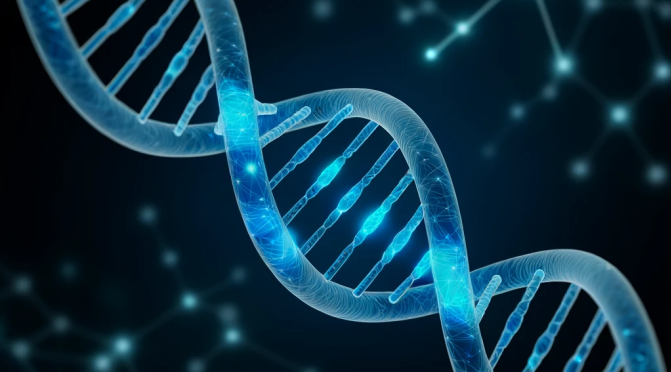A common objection against transgenderism by biological realists is to make a parallel argument from anorexia. Conservatives say “we wouldn’t want to help a skinny anorexic person lose weight because they thought they were too fat, would we?” Transgender activists reply that these two things are completely different. Who is right? Well, now we have a peer reviewed study to help us decide.
The new study was published in the peer-reviewed journal Sexuaologie, which is the journal of the German Society for Sexual Medicine, Sexual Therapy and Sexual Science/DGSMTW.
The Society for Evidence-Based Gender Medicine reported on it:
A new publication* in Sexuologie (the journal of the German Society for Sexual Medicine, Sexual Therapy and Sexual Science/DGSMTW) takes on the issue of the sharp rise in transgender identification in adolescent females, which remains poorly understood. The authors, Korte and Gille, present an intriguing hypothesis for this novel phenomenon, comparing and contrasting gender dysphoria to anorexia nervosa, and finding a number of important similarities. The authors conclude that clinicians working with gender-dysphoric adolescents must familiarize themselves with the complex dynamics of female adolescent development, and that trans-affirmative medical interventions should not be considered until adolescent development is complete.
SEGM got permission to post the full English language translation of the study, but I didn’t. So you have to click through to read it.
But here’s the interesting part of SEGM’s synopsis of the paper:
Drawing on their clinical work with such patients, Korte and Gille observe that trans identification in adolescent girls may reflect the desire to circumvent the challenges of female adolescence rather than a deep identification with maleness. They note that “although there is pronounced rejection of the female body and/or the female gender role,” there is frequently no pronounced desire for the primary or even secondary physical characteristics of the opposite sex.
[…]The authors note several similarities between anorexia and gender dysphoria. Both involve body image disorders where aggression is “turned against one’s own self, inward, but also outward, against important others.” The authors note:
“…in both anorexic eating disorders and gender identity disorders (gender dysphoria), relatives, especially parents, are exposed to strong feelings of helplessness and powerlessness in addition to the massive feelings of guilt and failure that often arise. In both disorders, this sometimes exacerbates the symptoms” of the … patient within a correspondingly pathological relationship dynamic.”
Korte and Gille conclude by outlining concrete steps that pediatricians, child and adolescent psychiatrists, gynecologists, and other medical providers can take to help girls navigate puberty in a way that averts or mitigates these developmental crises. They caution clinicians that in the vast majority of cases of gender dysphoria arising around adolescence, it is likely temporary and represents a maturation crisis or insecurity of ‘sexual, rather than gender identity.”
The authors criticize the “trans-affirmative” (gender-affirming) model of care for adolescents, which is focused on the provision of physical body modifications, as inconsistent with the principles of adolescent development. They highlight the importance of addressing adolescent gender dysphoria within a developmental framework, recognizing the complexity of adolescent experiences and the need for tailored interventions that address underlying conflicts and promote adaptive coping strategies.
I think this study is very helpful for understanding what’s really going on in the mind of young people when they reject their own gender.
In the most recent episode of Knight and Rose, Rose and I were talking about how to be more bold when discussing controversial issues. Our advice was to be the smartest person in the room. I remember when homosexuality was becoming a big issue, I went out and read a whole bunch of books about it, from people like Jeffrey Satinover and Charles Socarides. It’s similar to how I am handling transgenderism now.
Christians should always be the smartest people in the room when these topics come up. Nobody should be listening to the “compassionate” virtue signalers, who just want to jump to affirmation and approval. And the way you beat those people is by asking them a few simple questions about what they know, to show that they aren’t operating from knowledge at all.
The doctors and the surgeons are often just trying to hook a young person onto constant surgeries, drugs and treatments. They want money, lots of money. All you have to do is to ask them what liability they have if their treatment results in regret and the desire to detransition. Is there a warranty? Of course not. Would they put their promises about “pauses” and “rollbacks” in writing? Of course they won’t.
What about the emotion-based friends and relatives? All you have to do is ask them about technical issues. What are the long-term effects of these drugs? How much does it cost? How painful is it? Are there permanent effects? They are supporting the transition because they want to feel good. They want to be liked. When you ask them knowledge questions, the children can see that the feelings-based adults are only serving themselves.
It’s much better to discuss these issues by pointing out the long-term consequences of decisions. Of course young people have feelings. Of course they want to act on those feelings. But young people also need to hear from people who understand what is further down the road. They don’t know that, and they need to rely on adults who know for help. Not the greedy health care workers. And not the low-self-esteem feelings-based crowd.

